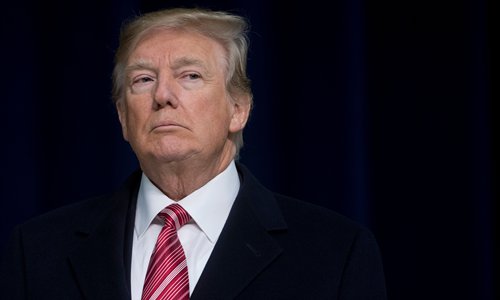HOME >> OPINION
Once abandoning leadership, US should not expect others to follow: expert
Source:Global Times Published: 2019/6/26 18:18:39

Photo: VCG
Editor's Note:
China-US tensions are mounting. At the same time, trade disputes between the US and the EU continue to grow. What is Washington's main objective to start trade disputes with global economies? How will unilateralism and protectionism affect international order and global economy? Tamas Matura (Matura), assistant professor of Corvinus University of Budapest and president at the Central and Eastern European Center for Asian Studies, shared his insights with Global Times (GT) reporter Lu Yuanzhi.
GT: The US has started a trade war with China and the trade friction between the US and the EU has also increased. Why did Washington start the trade dispute?
Matura: Economic and political tensions between the US and China have been rising for many years, but it was the Trump presidency that introduced a new style of negotiations. According to Trump, his predecessors have never been tough enough with China, thus Beijing was able to maintain its economic model without offering major concessions to the US.
With US hegemony, the reactions from the Trump administration are understandable, though the way and manner they are pursuing their goals are highly debatable. The EU shares many of the same concerns Washington has with China, but the EU would prefer to resolve tension through negotiation and partnership.
GT: How do the EU and its member states view the trade friction with the US and how will they cope with it?
Matura: The EU-US trade friction has not been translated into real action. Thus, the EU still hopes to find a way to negotiate with Washington, and probably some people around Trump do understand that it would be a major mistake to alienate the EU while faced with the challenges posed by China.
GT: The US has urged its European allies to exclude Huawei from 5G network building. What role does the US want Europe to play in its trade war with China? Why have European countries like France, Germany, Italy, and the UK dismissed the US warning?
Matura: Even the US cannot afford to pursue a contradictory foreign policy. Trump has done a lot of harm to US global leadership and US-EU relations in recent years when he stepped away from issues important to the EU (e.g. fighting climate change, the Iran deal).
Now, Trump expects the EU to follow American interests. One cannot abandon leadership once and expect others to follow later.
Furthermore, the US does not have any tangible evidence against Huawei, while certain EU powers still remember the US has spied on the highest levels of EU leadership. It is also important to introduce 5G technology as soon as possible, as it will contribute to the 4th industrial revolution, and Europe does not want to lose its competitive edge.
GT: What is the negative impact of Washington's unilateralism and trade protectionism? How will they influence current international order and global economy?
Matura: It really depends on who the next US president will be. The disruption made by Trump can be easily reversed by a more cooperative leader.
GT: In your previous article, you mentioned the EU institutions and many of Western European member states "assumed that the real intention of Beijing was to divide and rule Europe through the 16+1 (now 17+1) cooperation." How do you evaluate such criticism? Amid the rise of unilateralism and trade protectionism, how will China and Central and Eastern European (CEE) countries deepen their cooperation?
Matura: I believe certain EU member states can effectively divide the union from the inside, and Chinese foreign policy has adapted to this situation. With CEE countries, the EU is one of China's top priorities.
The only way China can strengthen their position in the era of unilateralism is through deepening and bolstering European integration.
Posted in: VIEWPOINT